Sometimes, there can be a very thin line between leading a healthy lifestyle and becoming obsessed with fitness and dieting. One studyshowsthat a whopping 28.8 million Americans will have aneating disorderin their lifetime. Social media platforms can be especially rife with dangerous content from self-proclaimed fitness coaches and dieting experts.
Recently, body-positive creator Emily Jade Bispo called out one influencer for her obsession with working out even when feeling under the weather. She explained how harmful such promotion oftoxic dieting culturecan be to young and impressionable people, both psychologically and physically.
To know more about how harmful the “no excuses” mindset can be,Bored Pandareached out to a licensed therapist and clinical worker,Sarah Herstich,ofReclaim Therapy. She also explained the term ‘meanspo’ and what people in the eating disorder community use it for.
More info:TikTok
RELATED:
A woman recently made a video saying that having a cold and her period doesn’t stop her from working out
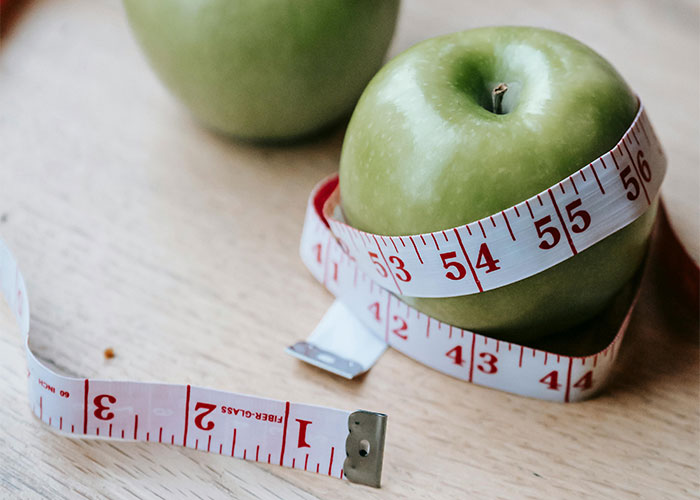
Image credits:Andres Ayrton / pexels (not the actual photo)
A body positivity advocate, Emily Jade Bispo, called out the fitness influencer for promoting a toxic diet and gym culture
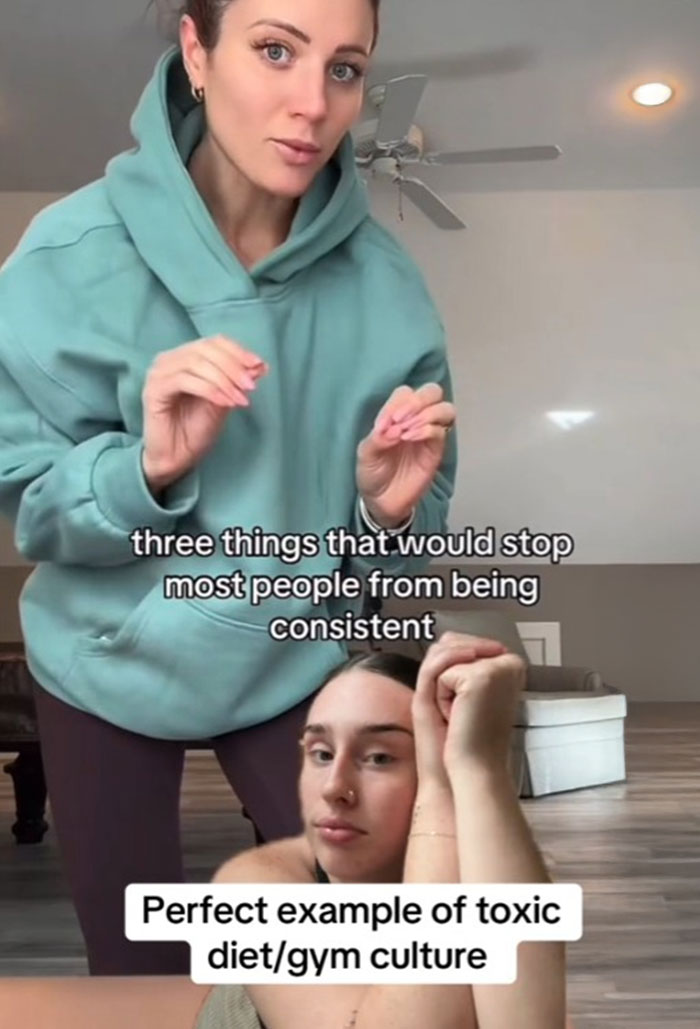
Image credits:emilyjadebispo


She said that this type of antagonistic ‘motivation’ only exists in the ED community
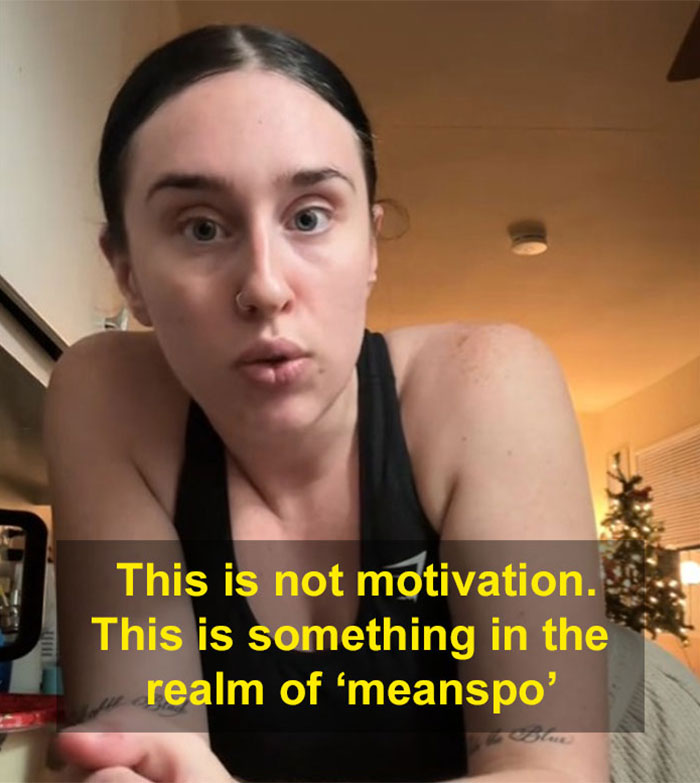


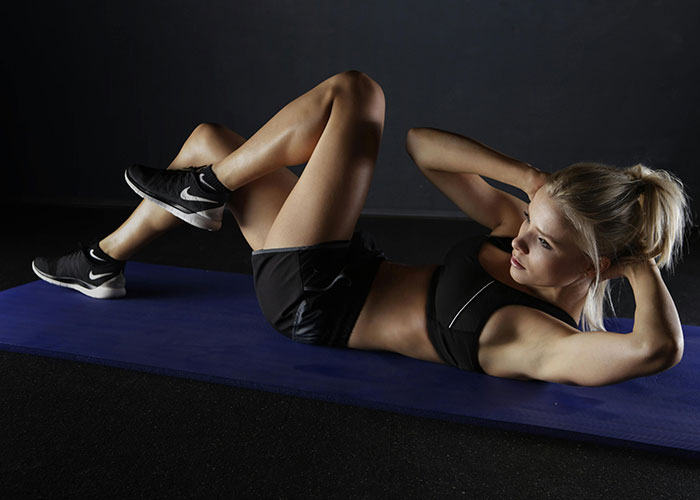
Image credits:Pixabay / pexels (not the actual photo)


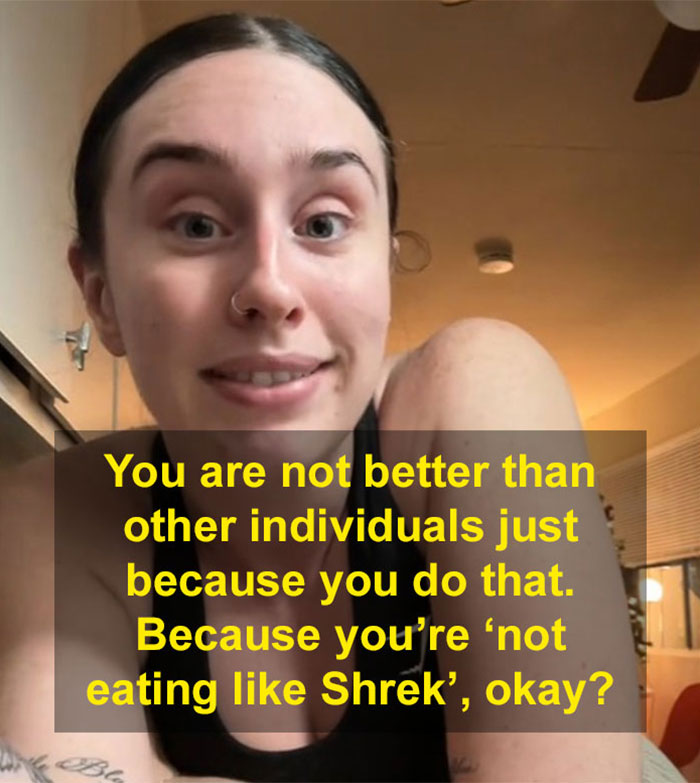

More than 800k people watched Emily’s video
“Shame has never been a good motivator,” says Sarah Herstich, LCSW, who treats disordered eating
The woman who posted the original video is Amanda Dobler, a fat loss and mindset coach. Not everything Dobler said is untrue, but it’s more about how she worded it. Using phrases like “Eating like [freaking] Shrek” and “The reason why you’refatis because you don’t try hard enough” sounds more like bullying than motivating.
Sarah Herstich, LCSW, explains that this type of mindset can be more damaging than helpful. “The whole ‘no excuses’ thing might sound motivating, but it actually sets people up for shame and burnout,” she says.
“All-or-nothing thinking is a trap,” she goes on. “If you believe ‘no excuses’ is the only way, then anytime you need rest or flexibility, it feels like failure. And that’s not motivation; it’s self-punishment.”
“Bodies are not machines,” Herstich says, echoing whatbody positivityadvocate Emily Jade Bispo said in her video. “Rest, joy, and balance are just as important as movement. Forcing yourself to work out when you’re exhausted isn’t discipline; it’s ignoring your body’s needs.”
Bispo, who reacted to Dobler’s video, referred to her motivation methods as ‘meanspo.’ Herstich explains that the term is used to refer to ‘motivational’ content that’s actually just bullying.
“Instead of lifting people up, it tears them down with insults and shame. This kind of messaging thrives in toxic diet culture and eating disorder spaces,” Herstich says.
“It convinces people that self-hate will somehow make them better when, really, it just deepens insecurity and fuels unhealthy behaviors. You don’t need to be bullied into health or fitness, and anyone telling you otherwise is selling you a lie,” Herstich notes.

Image credits:Getty Images / unsplash (not the actual photo)
Mild workouts are generally okay when you have a cold or are on your period
In the video, Dobler also says some things that alarmed some viewers: she claimed that having a head cold or being on your period shouldn’t stop you from staying consistent with your workouts.
That’s true, but only to an extent. According to the co-director of the Mayo Clinic Sports Medicine Center and a professor at the College of Medicine, Mayo Clinic,Edward R. Laskowski, M.D., mild to moderate physical activity is okay when you have the common cold and no fever.
The general rule is that if your symptoms are “above the neck,” meaning a runny nose or a sore throat,exercisingis generally okay. If the symptoms are “below the neck,” like chest congestion, an upset stomach, or a hacking cough, it’s better to refrain from strenuous physical activity.
Still, Dr. Laskowski recommends taking it easy. “Let your body be your guide,” he writes. “If you feel miserable, take a break. A few days off from exercise when you’re sick shouldn’t affect your performance. Resume your normal workout routine gradually as you begin to feel better.”
As for working out duringmenstruation, it even may have benefits. Doing somelight exercisingsuch as taking a walk, light cardio and gentle strength training exercises, and yoga, pilates, or tai chi can help alleviate cramps, bloating, or nausea. It can also help reduce irritability and fatigue, but the general rule, again, is to not overdo it. If pain increases or you feel discomfort, fatigue, or nausea, experts recommend to stop and rest.

Misinformation about fitness and nutrition runs rampant on TikTok and other social media platforms
A lot of the content around exercising and nutrition on social media platforms like TikTok perpetuates toxic diet culture, especially among teens and young adults. A 2022 University of Vermont studyfoundthat weight-normative messaging dominates TikTok.
Researchers claim that a lot of the content positions weight as the main indicator of a person’s health. Creators glorify weight loss and position food as a means to achieve health and thinness.
Senior researcher and, associate professor and director of the Didactic Program in Dietetics at UVM Lizzy Pope says that this type of content leads young people to adopt harmful ideas about body image. “Each day, millions of teens and young adults are being fed content on TikTok that paints a very unrealistic and inaccurate picture of food, nutrition and health,” she explained.
The researchers at UVM think that we should move away from a weight-normative mindset and look at dietetics with a weight-inclusive approach. “Just like people are different heights, we all have different weights,” Pope added. “Weight-inclusive nutrition is really the only just way to look at humanity.”



















Thanks! Check out the results:You May Like30 People Who Completely Transformed Themselves And Gained A Whole New Life (New Pics)Simona KinderytėGuy Asks People How They Get Their 10k Steps In Daily And 41 DeliverGabija Saveiskyte"What’s The Biggest Fitness Myth That Just Won’t Die?” (30 Responses)Rūta Zumbrickaitė
Simona Kinderytė
Gabija Saveiskyte
Rūta Zumbrickaitė
Health